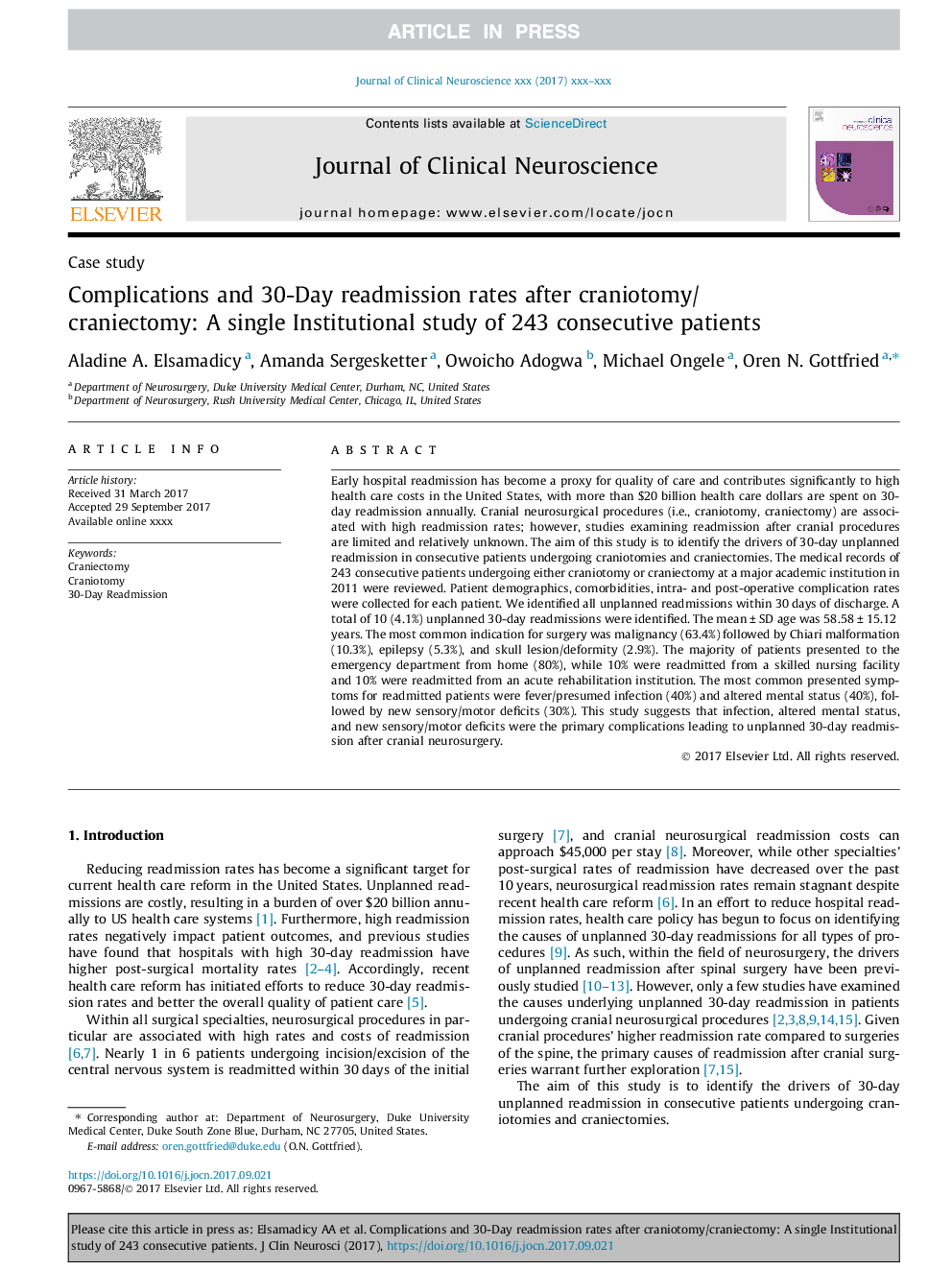| Article ID | Journal | Published Year | Pages | File Type |
|---|---|---|---|---|
| 8685392 | Journal of Clinical Neuroscience | 2018 | 5 Pages |
Abstract
Early hospital readmission has become a proxy for quality of care and contributes significantly to high health care costs in the United States, with more than $20â¯billion health care dollars are spent on 30-day readmission annually. Cranial neurosurgical procedures (i.e., craniotomy, craniectomy) are associated with high readmission rates; however, studies examining readmission after cranial procedures are limited and relatively unknown. The aim of this study is to identify the drivers of 30-day unplanned readmission in consecutive patients undergoing craniotomies and craniectomies. The medical records of 243 consecutive patients undergoing either craniotomy or craniectomy at a major academic institution in 2011 were reviewed. Patient demographics, comorbidities, intra- and post-operative complication rates were collected for each patient. We identified all unplanned readmissions within 30â¯days of discharge. A total of 10 (4.1%) unplanned 30-day readmissions were identified. The meanâ¯Â±â¯SD age was 58.58â¯Â±â¯15.12â¯years. The most common indication for surgery was malignancy (63.4%) followed by Chiari malformation (10.3%), epilepsy (5.3%), and skull lesion/deformity (2.9%). The majority of patients presented to the emergency department from home (80%), while 10% were readmitted from a skilled nursing facility and 10% were readmitted from an acute rehabilitation institution. The most common presented symptoms for readmitted patients were fever/presumed infection (40%) and altered mental status (40%), followed by new sensory/motor deficits (30%). This study suggests that infection, altered mental status, and new sensory/motor deficits were the primary complications leading to unplanned 30-day readmission after cranial neurosurgery.
Related Topics
Life Sciences
Neuroscience
Neurology
Authors
Aladine A. Elsamadicy, Amanda Sergesketter, Owoicho Adogwa, Michael Ongele, Oren N. Gottfried,
